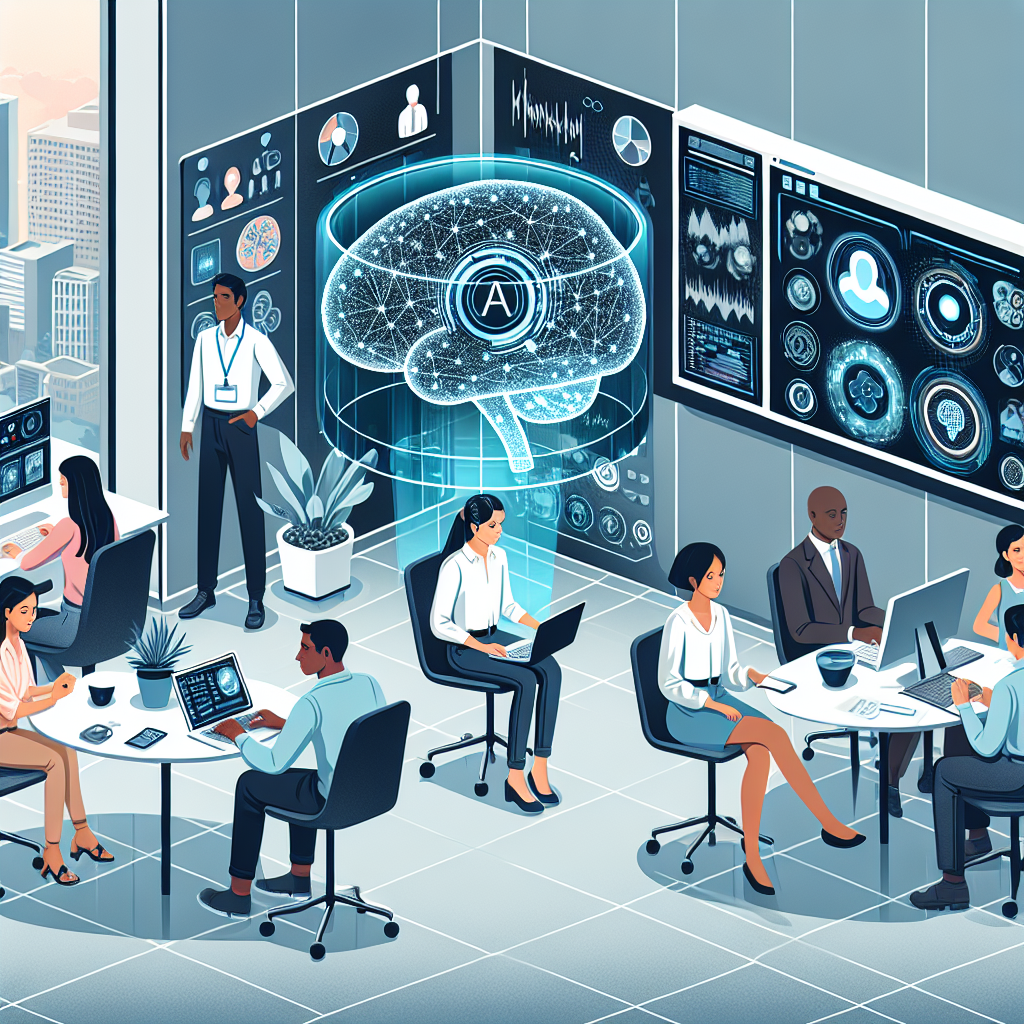Artificial Intelligence (AI) has become increasingly prevalent in the workplace, revolutionizing how tasks are completed and decisions are made. While AI offers numerous benefits such as increased efficiency and improved productivity, it also raises important ethical concerns that must be addressed to ensure that AI is used responsibly and ethically in the workplace.
One of the primary ethical concerns surrounding AI in the workplace is the potential for bias in decision-making. AI systems are trained using data sets that may contain biases, which can result in discriminatory outcomes. For example, AI algorithms used in hiring processes may unintentionally favor certain demographics over others, leading to unfair hiring practices. It is crucial for organizations to be aware of these biases and take steps to mitigate them through careful selection of training data and ongoing monitoring of AI systems.
Another ethical concern is the impact of AI on job displacement. As AI technology becomes more advanced, there is a fear that it will lead to job loss for many workers. While AI has the potential to automate routine tasks and free up employees to focus on more strategic work, there is a risk that certain jobs may become obsolete. It is important for organizations to consider the ethical implications of job displacement and develop strategies to retrain and redeploy workers whose roles are impacted by AI technology.
Privacy and data security are also significant ethical concerns when it comes to AI in the workplace. AI systems often require access to large amounts of data in order to make accurate predictions and decisions. However, this data may contain sensitive information about employees, customers, or other stakeholders. It is essential for organizations to implement robust data protection measures to safeguard this information and ensure that it is used responsibly and in compliance with relevant regulations.
Transparency and accountability are key principles that organizations must uphold when deploying AI in the workplace. Employees and other stakeholders should be informed about how AI systems are being used, what data is being collected, and how decisions are being made. It is important for organizations to be transparent about the limitations of AI technology and to establish mechanisms for accountability in case of errors or biases in AI systems.
To address these ethical concerns, organizations should establish clear guidelines and policies for the responsible use of AI in the workplace. This may include developing ethical frameworks for AI deployment, conducting regular audits of AI systems, and providing training for employees on the ethical implications of AI technology. By prioritizing ethics and responsible use of AI, organizations can ensure that they are leveraging this powerful technology in a way that benefits both their business and society as a whole.
FAQs:
Q: How can organizations ensure that AI systems are not biased?
A: Organizations can mitigate bias in AI systems by carefully selecting training data, testing AI algorithms for bias, and implementing regular audits to monitor for discriminatory outcomes.
Q: What are some strategies for addressing job displacement caused by AI technology?
A: Organizations can develop training programs to retrain workers whose roles are impacted by AI technology, explore opportunities for redeployment within the organization, and collaborate with external stakeholders to create new job opportunities.
Q: How can organizations protect data privacy and security when using AI technology?
A: Organizations can implement robust data protection measures such as encryption, access controls, and regular security audits to safeguard sensitive information from unauthorized access or misuse.
Q: What steps can organizations take to promote transparency and accountability in AI deployment?
A: Organizations can be transparent about how AI systems are being used, establish clear communication channels for employees and stakeholders, and implement mechanisms for accountability in case of errors or biases in AI systems.

